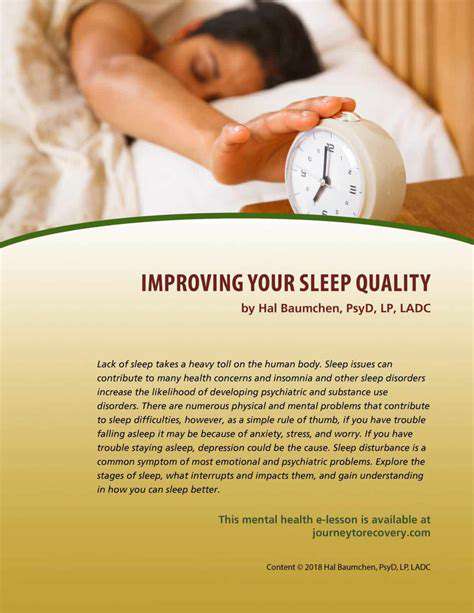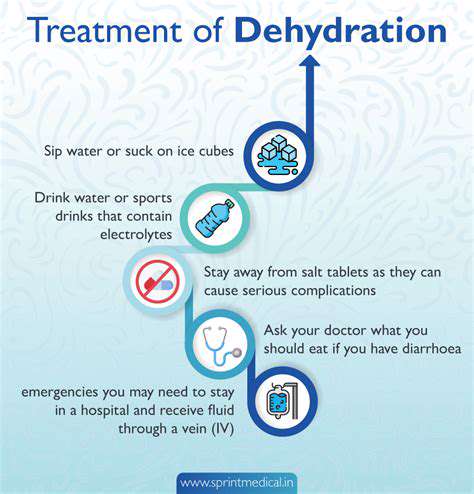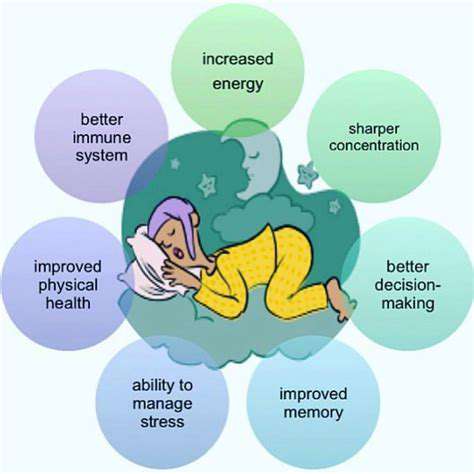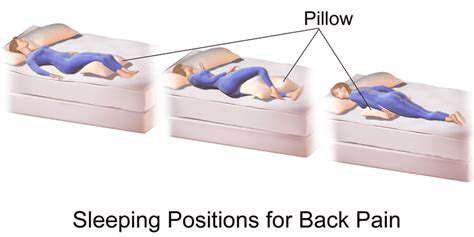Poor Sleep Posture: The Hidden Danger to Your Health
What is Poor Sleep Posture?
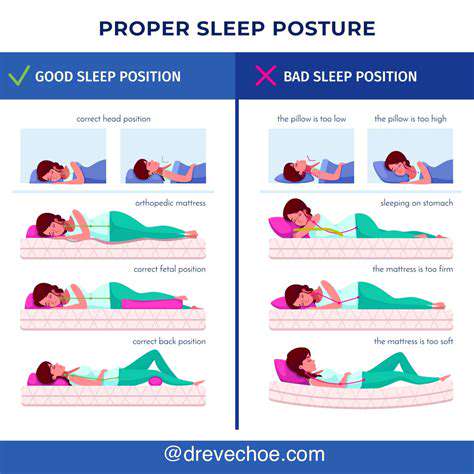
Understanding Sleep Posture
Sleep posture refers to the position one maintains while sleeping, and it can significantly affect overall health. Poor sleep posture can lead to discomfort and chronic pain in areas such as the neck and back. It is essential to recognize how different positions – such as sleeping on the stomach, back, or side – impact the spine's alignment. Studies suggest that the ideal sleep posture supports the natural curvature of the spine, thereby minimizing strain on muscles and ligaments.
When sleep posture is compromised, it may lead to long-term issues, including tension headaches and decreased mobility. Choosing the right pillow and mattress can support better sleep posture. In addition, it can influence sleep quality, which is crucial for overall health and wellness. Observing one’s usual sleeping position can help in making necessary adjustments for improvements.
Individuals may not realize that their sleep habits contribute to daily fatigue or discomfort. Addressing poor sleep posture can result in improved energy levels and enhanced mood throughout the day. By becoming more mindful of sleep positions, individuals can take proactive steps toward better health.
It’s also important to consider other factors that can influence sleep posture, such as furniture and bedding. Ergonomically designed mattresses and pillows can provide significant support for healthier sleep positions. Additionally, awareness and education about proper sleep posture can empower individuals to enhance their sleep experience.
Common Consequences of Poor Sleep Posture
One of the most prevalent consequences of poor sleep posture is chronic neck and back pain. Over time, misalignment can lead to degenerative conditions that affect mobility and comfort. Without addressing these positional issues, individuals may face persistent pain that hinders daily activities. Furthermore, muscle strains can develop as a response to incorrect posture during sleep.
In addition to physical pain, individuals may experience negative psychological impacts due to poor sleep quality. Discomfort can lead to disturbances throughout the night, resulting in restlessness and fatigue during the day. This can affect mood and productivity, highlighting a connection between sleep posture and mental health.
Moreover, poor sleep posture can disrupt breathing, leading to complications such as sleep apnea. This serious condition can reduce the quality of sleep and oxygen intake during the night. As a result, the risks associated with sleep apnea may also contribute to cardiovascular problems.
Addressing these consequences often requires changes in sleep habits and environments. Seeking professional guidance, such as from a chiropractor or sleep specialist, can provide valuable insights. Ultimately, prioritizing proper sleep posture can mitigate long-term health risks and improve overall well-being.
Tips for Improving Sleep Posture
To enhance sleep posture, consider the alignment of your spine when selecting pillows and mattresses. A mattress that conforms to the natural curves of your body can greatly improve support during sleep. For side sleepers, a thicker pillow between the knees helps maintain spinal alignment. Back sleepers may benefit from a pillow that supports the neck without raising it too high.
It is also beneficial to consciously adjust your sleeping position if you tend to sleep on your stomach. This position can place unnecessary strain on the neck and spine. Training yourself to sleep on your back or side can contribute significantly to improving posture. Incorporating gentle stretching exercises before sleep can also ease muscle tension.
Another useful tip is to create a sleep environment that minimizes distractions and reduces discomfort. This includes maintaining a comfortable room temperature and minimizing light exposure. A conducive sleep environment encourages natural, restful sleep, which supports healthier postures.
Lastly, regular check-ins with a healthcare professional can help track progress and make necessary adjustments. Personalized recommendations can lead to better outcomes over time. Cultivating healthy sleep habits can lead to lasting changes that enhance overall health and well-being.
When to Seek Professional Help
If poor sleep posture leads to persistent pain or discomfort, it may be time to consult with a healthcare provider. Chronic pain that interferes with daily activities should not be ignored. Assessing the root cause of pain can lead to appropriate treatment and relief. Moreover, professionals can provide tailored advice based on individual health conditions and needs.
Consultations with physical therapists or chiropractors can offer therapeutic options for realigning posture during sleep. Many professionals use a combination of manual therapy and exercise interventions to address underlying issues. This holistic approach can facilitate recovery and promote better sleep habits.
Furthermore, individuals experiencing significant sleep disturbances, like insomnia or sleep apnea, should prioritize medical advice. These conditions can have serious health ramifications if left untreated. Addressing sleep quality is crucial in creating an overall healthier lifestyle.
In short, don't hesitate to seek out help if poor sleep posture is causing distress. Proactive steps taken today can pave the way for a healthier, more restful tomorrow. Establishing a partnership with medical professionals can lead to optimal outcomes for individuals looking to improve their sleep quality.
The Consequences of Poor Sleep Posture
The Impact on Spinal Health
Poor sleep posture can significantly affect spinal alignment and health. When individuals sleep in awkward positions, it can lead to misalignment of the spine, which may result in chronic pain and discomfort. Over time, this misalignment can contribute to more severe conditions such as herniated discs or degenerative disc disease.
Proper spinal alignment is crucial for the body’s overall health. It helps to distribute weight evenly across the spine, reducing unnecessary stress on specific vertebrae. When one sleeps with the neck or back twisted, it can strain these areas and lead to muscle tightness and imbalance.
Maintaining a neutral spine position while sleeping encourages better posture during waking hours as well. When the spine is well-aligned at night, the muscles and ligaments have the chance to relax and repair, leading to less tension in the back during the day.
Effects on Overall Quality of Sleep
Sleep posture can greatly influence the quality of sleep experienced. Poor positioning can lead to disruptions such as tossing and turning throughout the night, resulting in fragmented sleep cycles. This can prevent individuals from reaching deeper sleep stages, essential for restorative processes.
Inadequate sleep quality has been linked to increased stress levels and a greater incidence of mood disorders. When the body is not allowed to fully rejuvenate during rest, it can lead to feelings of fatigue and irritability, affecting daily performance.
Moreover, individuals with poor sleep posture may experience frequent awakenings due to discomfort or pain, which can create a cycle of restless nights and groggy days. This not only impacts mood and cognitive function but also reduces productivity and overall quality of life.
Long-term Health Risks
Over time, poor sleep posture can lead to a myriad of long-term health risks, including cardiovascular issues. Studies have shown that inadequate sleep can increase the risk of hypertension and other heart-related problems. This is partly due to the body’s inability to recover properly during sleep, which strains the cardiovascular system.
Moreover, chronic pain resulting from poor posture during sleep can lead to a sedentary lifestyle. As discomfort discourages physical activity, this can result in weight gain and an increased risk of obesity, which is a known risk factor for various chronic diseases such as type 2 diabetes and certain cancers.
Addressing sleep posture is crucial for long-term health. Making simple changes, such as choosing the right mattress and pillow, can make a significant difference. Ultimately, investing in proper sleep hygiene can pave the way for better health outcomes and enhance overall well-being.
How to Improve Sleep Posture
Understanding the Impact of Sleep Posture on Health
Many people underestimate how their sleep posture can affect their overall health. Poor sleep posture may lead to various health issues, including chronic back pain, neck strain, and even headaches. When the spine is not properly aligned during sleep, it can create stress on muscles and ligaments, leading to discomfort and potential long-term damage.
Moreover, sleep posture can influence respiratory function. For instance, sleeping on your back may cause the tongue and soft tissues of the throat to collapse to the back of the mouth, obstructing the airway. This can lead to snoring and sleep apnea, conditions that disrupt restful sleep and can have serious consequences for cardiovascular health.
Practical Tips for Better Sleep Posture
To improve your sleep posture, consider investing in a quality mattress and pillows that provide adequate support. A medium-firm mattress is often recommended, as it can help maintain spinal alignment while accommodating natural body curves. Additionally, choose a pillow that keeps your head and neck aligned with your spine, which may reduce strain on your neck and shoulders.
Another effective strategy is to practice good sleeping habits. Try sleeping on your side with a pillow between your knees to keep your hips aligned. If you prefer sleeping on your back, consider placing a small pillow under your knees to support your lower back's natural curve. Lastly, establishing a consistent bedtime routine that includes relaxation techniques can contribute to overall sleep quality, making it easier to achieve a healthier sleep posture.
